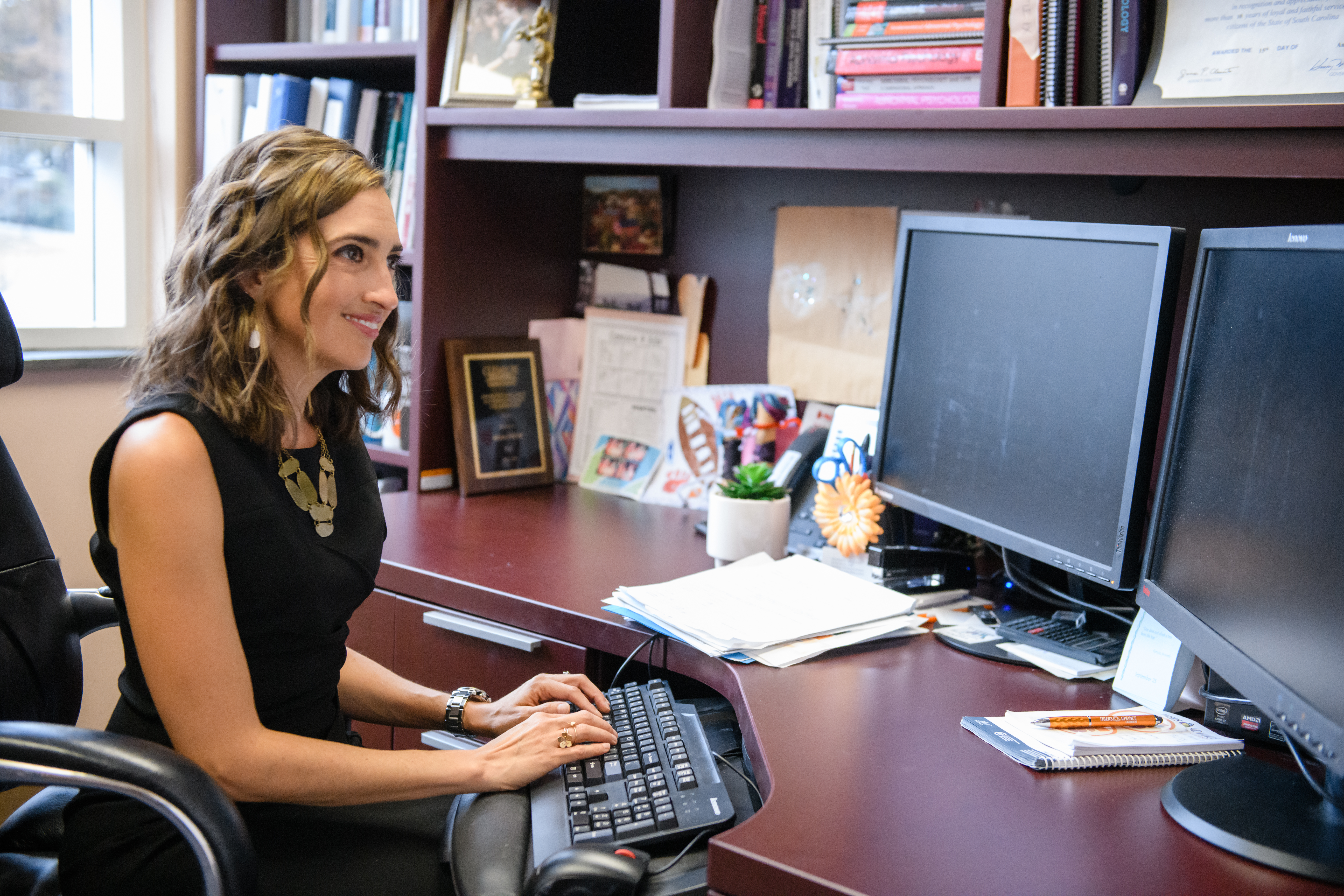While Clemson’s staff, faculty and students have shown incredible resilience rising to meet the challenges of COVID-19, it’s important to acknowledge just how tough this past year has been. The pandemic has reshaped our lives—day by day, moment by moment.
Clemson Professor and Clinical Psychologist Heidi Zinzow says it is important to promote resilience in response to life stressors.
“The goal is not necessarily to rid yourself of all distressing thoughts and emotions but rather to find a healthy and functional way of relating and responding to these distressing experiences.”
Heidi Zinzow

“Stressful times can present an opportunity for growth, making meaning, connecting with others, and developing strength to face the future,” said Zinzow. The addition of mindfulness and meditation strategies can clarify one’s values and needs while encouraging acceptance, compassion and the ability to consciously choose effective ways to respond to difficult situations according to Zinzow. “Effective stress-management strategies include maintaining healthy physical habits, staying engaged in pleasant and social activities and committing to actions consistent with one’s values,” she added.
Zinzow also encourages connecting with formal support resources available, and many support resources are available to employees and their family members.
Faculty, staff and students may benefit from the following resources:
Take a “mindful moment”

Balancing a busy schedule with multiple daily deadlines can be unsettling. To maintain a sense of calm, adding moments of mindfulness, the practice of purposely focusing your attention on the present moment, allows a person to recognize important cues such as dehydration and hunger. Mindfulness apps and online tools can help you practice.
Healthy Campus has opened Koru online training for students, faculty and staff. Developed at Duke University, Koru Mindfulness is an evidence-based program specifically designed for teaching mindfulness and meditation as a way to manage stress and reduce anxiety. Participants will learn specific skills that help calm and focus the mind, including breathing exercises, guided imagery, body scan and more. This four-session course led by Director of Healthy Clemson Jennifer Goree starts March 24.
Commit to one act of wellness
If the thought of starting a new exercise regimen or sticking to a healthy eating plan seems daunting, try committing to just one healthy choice first. Find enjoyment while cooking a healthy new recipe for dinner or sign up for one of Campus Recreation’s many virtual workout offerings. Taking a five-minute break to walk outside between meetings is recommended, too.
Commit to one act of kindness
Fewer in-person interactions may make it harder to recognize when someone is struggling while at the same time distance may be contributing to feelings of isolation and loneliness. A small, simple act of kindness can make a huge difference in someone’s day. Sending a quick note of gratitude for a colleague’s hard work, scheduling a call with someone you haven’t spoken to in a while or dropping off a small gift to lonely neighbor are just a few ideas.
Ask for help
It’s not always easy to ask for help, but support is just a phone call away. Clemson’s Employee Assistance Program is available 24/7 at 866-327-2400.
Additional resources:
- Caregiver Resources
- Therapy Assistance Online (TAO) (available to students, faculty and staff)
- Call center assistance
- Statewide support for individuals in need of mental health or substance abuse services
- 1-844-SC-HOPES (724-6737)

